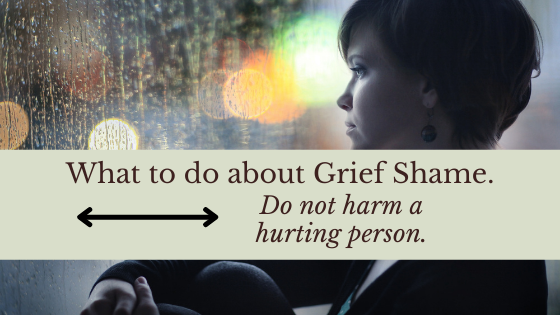
I am an accomplished griever. I have lost people I have loved, places and community connections, jobs, pets, relationships, social standing and physical health.
Sometimes I think this is because I have a big heart and have loved many people. We risk grief when we love.
Part of the gift repeated grief brings is the ability to help both those who are going through it AND helping people who love grievers and don’t have any idea where to turn to figure out how to continue to love this person who is hurting. This is especially challenging because the person who is grieving may or may not be able to communicate well at the height of the grief process, during the holiday season and around important events like weddings, birthdays or funerals for years to come.
Below are some situations I have encountered as a person who has grieved and as one who has helped and supported people through the grief process for many years.
Your Job is NOT to fix, make better, take away emotions of or scold a person who is feeling sorrow, trauma or pain.
Your job is to connect with the person who is grieving. Your job is to show empathy and caring.
The worst things you can do are shame the person who is grieving by saying things like:
“You aren’t over it yet?” or “Stop crying” or “Don’t feel that way” or “Pull up your big girl panties already. I only grieved for XX amount of time.”
This short video from Brene Brown shows us succinctly how to express empathy for people who are hurting and/or grieving.
The Grieving Person is not responsible to create your to-do list for being a good friend.
If I had a penny for all the times people said: “If you need anything, call me….” because grieving people often don’t have the energy or motivation to know what they might need or know what you might have any desire to provide during her time of hurt.
It is difficult enough to make requests under usual circumstances, but when mired in grief it is nearly impossible.
If you would like to do something for the person who is grieving, offer several specific options such as “Hey, hey I am going to the grocery store – is there anything I can pick up for you while I am out?” or “I’m taking some clothes to the dry cleaner – may I take your things, too?” or “Would you like company? I am headed to Starbucks and would be happy to swing by with your favorite drink OR could pick you up and we can drive through together.”
You may also say your version of, “I want to help and I don’t know what to do. I am literally nervous that everything and anything I do or say is wrong, so please accept permission to guide, direct, ask for me to do things for you, to be places with you…. and I will keep checking in, at least.”
Your job is to be present, awkward in your skin if necessary, and be gentle and patient.
One of my preferred methods of caring for my loved ones who are grieving is to reach out to them regularly, most often via text or phone call.
I have some friends I texted daily for months when they were going through tough times.
When my father died last year, I wondered where my daily text messages from friends were?
I don’t say this to evoke text messages now, I say this to let you know your strongest friends need loving attention, too. They will treasure your awkwardness because more likely than not they are awkward. Every time we grieve something new, it is like the first time all over again… plus it is the first time grieving that person or circumstance.
First times are always awkward.
It also would have been helpful if I had reached out to trusted friends and asked for their text messages. A few years ago when I was going through a difficult break-up I asked friends if I could text them “Good night” because one of the hardest things for me was not having a person to participate in the normal ritual of saying goodnight.
My friends had no way of knowing this was important to me. Thankfully I was strong and aware enough to ask for the support.
Final words: Be gentle, don’t disappear and try your best. When you don’t do your best – apologize and stay attentive to the person you love who is grieving.
Repeat as necessary.
Julie JordanScott is a Creative Life Coach, an award-winning storyteller, actor and poet whose photos and mixed media art graces the walls of collectors across the United States. Her writing has appeared on the New York Times Best Sellers List, the Amazon best sellers list and on American Greetings Holiday cards (and other greeting cards). She currently lives in a manse in Sussex, NJ, where she is working on finishing her most recent book project, hugging trees daily and enjoys having random inspirational conversations with strangers.
Follow on Instagram to Watch IGTV exclusive videos, stories and posts about writing and the creative process.
Let our Words Flow Writing Community: the only one missing is you! Join us in the Private Writing Group by clicking here.
